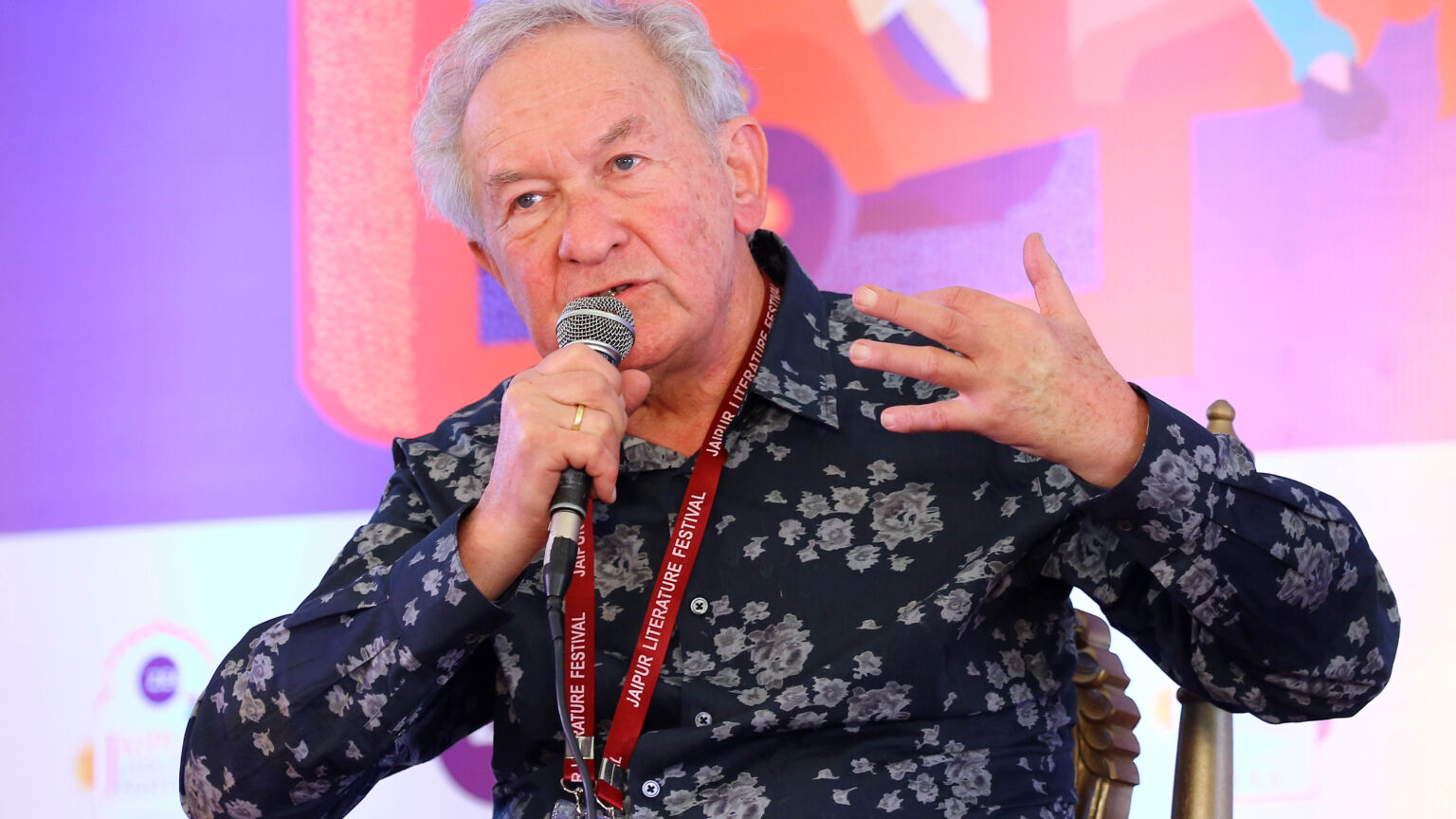Simon Schama wants you to shut up
Story of Us is a futile attempt to unite the nation under the banner of BBC-approved orthodoxies.

Want to read spiked ad-free? Become a spiked supporter.
When a BBC documentary about Britain’s postwar history is given a title as immodest as Story of Us, it invites two obvious questions. Who is it that’s telling our story? And who the hell are ‘we’, anyway? That it is fronted by Simon Schama, Ivy League professor and Cambridge graduate, probably tells you all you need to know before you’ve started watching.
Story of Us is a three-part series on BBC iPlayer, which first aired on BBC Two last month. It promises to answer the question of who ‘we’ are as Britons, and asks ‘whether art, music and words can be the threads that bind us together’.
Discovering the ‘story of us’ is apparently necessary because ‘we live in divided times’, as Schama portentously intones in episode one, as he overlooks the City of London from a nearby rooftop. In an ‘age of rising populism and tribal identity politics’, he says, we must look away from the ‘daily news cycle’ and the shouting matches of social media, towards the ‘beating heart’ of our society: our common culture.
Not a bad suggestion, as far as it goes. But Story of Us completely misses the mark.
A recurring theme in Story of Us is that rare moments of national unity are found when the country turns against tradition and against establishment values (or at least how Schama understands them). It begins with the 1951 Festival of Britain, which constructed a techno-optimistic vision for the country’s future on the bombed-out rubble of London’s South Bank. The festival’s modernist installations were then demolished by the Conservative government that was elected later that year, leaving behind a bubbling undercurrent of class-based resentments.
The resentments, desires and feelings of the masses at odds with middle-class Britain would be crystalised in the hard-boiled prose of Alan Sillitoe’s 1958 novel, Saturday Night and Sunday Morning. Schama focusses on the 1960 film adaptation, starring Albert Finney, as emblematic of the period’s rebellious spirit.
Schama lauds Finney’s immortal portrayal of the factory-working womaniser, Arthur Seaton, as ‘at last talking back’ against ‘British self-satisfaction’. Until then, postwar portrayals of working-class men tended to be celebrations of their wartime heroics or caricatures of simple folk looking ‘cheerful in adversity’. This was the 1950s equivalent to today’s BBC dramas that paint over the nation’s cracks with coats of ‘inclusivity’ and ‘diversity’.
Yet for all the glib celebration of Sillitoe lifting the national rug to make working-class people ‘visible for the first time’, Schama’s own vision of the unifying force of British culture is a sanitised affair. He completely sidesteps the complexity of the divisions he seeks to address.
His championing of past working-class heroes sits uneasily with his own undemocratic vision of Britain – perhaps best summed up as a paternalistic nanny state that leaves little room for dissent. That Schama picks the 2012 London Olympics as a recent symbol of British ‘togetherness’ is telling. As Gareth Roberts once wrote on spiked, the opening ceremony was a victory lap for the widely hated liberal establishment. Its message could be boiled down to ‘just shut up’ – shut up about criticising ‘the possible downsides to uncontrolled mass immigration’, the ‘NHS and its funding model’ or the EU. Because doubting ‘our wonderful progressive hegemony’ would ‘make you a nasty person’, as Roberts put it.
As if taking cue from these words, Schama warns us against ‘a voice that has got louder’ since 2012. That is, the voice challenging the sacred tenets of multiculturalism. While extolling the perceived virtues of cosmopolitanism in Story of Us, the masses who yearn for a coherent sense of nationhood are cast as irrational, ungrateful mudslingers. Far from unifying a divided society, Schama’s elitist ideas are precisely what is driving so much of the fragmentation.
A story of 21st-century Britain wouldn’t be complete without the internet, which as the 2012 Olympics reminded us, rests on the ‘world wide web’ invented by Englishman Tim Berners-Lee. Yet Schama goes so far as to explicitly reject the democratisation that the internet has enabled. He tells us that ‘Knowledge and truth are under siege from people feeling they can say whatever the hell they like’. The door to participate in public discussion is open like never before, ‘but open to who?’, Schama asks.
Ultimately, Story of Us appears to be less a celebration of ‘the gloriously contentious story of us’ and yet another exercise in talking down at the plebs who dissent from a BBC-approved worldview. Progressivism, multiculturalism and censorship are all championed. Meanwhile, those who may feel dislocated by these forces are presented as a danger to democracy itself.
Common culture can indeed help to bridge otherwise intractable divides. But to do so, people have to feel included. For all its appropriation of working-class counter-culture, the Story of Us is really the story of Them: those ‘swivel-eyed swine’ at the top, as Sillitoe described them. ‘The bastards who are grinding us down.’
Bradley Strotten is a freelance writer based in London. Follow him on X @BradStrotten.
Who funds spiked? You do
We are funded by you. And in this era of cancel culture and advertiser boycotts, we rely on your donations more than ever. Seventy per cent of our revenue comes from our readers’ donations – the vast majority giving just £5 per month. If you make a regular donation – of £5 a month or £50 a year – you can become a and enjoy:
–Ad-free reading
–Exclusive events
–Access to our comments section
It’s the best way to keep spiked going – and growing. Thank you!









Comments
Want to join the conversation?
Only spiked supporters and patrons, who donate regularly to us, can comment on our articles.